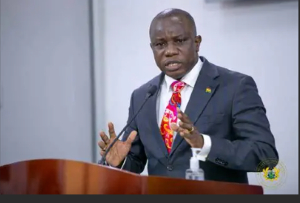The National Petroleum Authority (NPA) - the institution mandated to regulate, oversee and monitor activities in the petroleum downstream industry - is pushing for stronger local players in the industry, even as it seeks to shut down operations of idle members.
Hassan Tampuli, Chief Executive Officer of the NPA, in a speech to members of the American Chamber of Commerce (AMCHAM) said prior to the introduction of the deregulation policy, petroleum marketing operations were dominated by foreign Oil Marketing Companies (OMCs). But, currently, the shareholding structure of private companies in the industry is at least 50 percent local ownership.
“To attract increased value-added investments in the sector and thereby create more job opportunities for Ghanaians, the Ministry of Energy in collaboration with other relevant industry stakeholders has put together a draft local content policy that advocates a different percentage regime of local partnership which is yet to be approved by cabinet.
“This, in turn, will increase the industry’s contribution to national economic development, but will be more significant if local participation is enhanced,” he said.
Despite the push for stronger local players, Mr. Tampuli said the authority may have to reduce the number of Bulk Oil Distribution Companies (BDCs) by the end of this year, due to the outcome of a comprehensive review of the sector which shows that only six BDCs account for about 52 percent of imported petroleum products.
“The review of the operations of the Petroleum Service Providers will result in restructuring the supply chain of petroleum products for retail at the pumps to the public. This restructuring will create more business opportunities for Ghanaians and increase accessibility,” he told the chamber.
The NPA has issued 30 different categories of licences to applicants to undertake business operations in the petroleum downstream industry. Some of the licences issued include: Bulk Distribution Company licences (BDCs); Oil Marketing Companies licences (OMC); Liquefied Petroleum Gas Marketing Companies (LPGMCs) licences; Oil Trading Company licences (OTCs); and Petroleum Products Export licences.
With 41 BDC licences, 102 OMC licences, 41 LPGMCs licences, 14 OTCs and 20 Export licenses, some of these companies have either reduced their operational capacities or halted operations entirely due to indebtedness to banks and unfair market practices by the big players, according to the aggrieved ones.
Cabinet measures on tackling gas explosions
President Nana Addo Dankwa Akufo-Addo on Thursday, on the advice of his cabinet, directed that steps be taken to give comfort to and ensure safety of the citizenry after the deadly gas explosion that took place at Atomic Junction on Saturday, October 7, which resulted in the loss of seven lives, 132 injuries and the destruction of valuable property.
One of the major actions to be taken includes the siting of LPG Bottling Plants away from congested commercial and population centres. This means bottling plants will have to procure, brand, maintain and fill empty cylinders to be distributed to consumers and households through retail outlets - but low risk stations will be designated for the supply of gas to vehicles. Below are the nine major steps to be taken.
Immediate inspection of all gas stations and the vigorous enforcement of existing regulations by the National Petroleum Authority.
Review of the current licencing regime to ensure that only those with demonstrable capacity and competence engage in the LPG distribution business.
Institution of mandatory training and certification of the staff of Regulators, Oil Marketing Companies (OMCs) and LPG Marketing Companies to ensure the safe handling of LPG.
Review the safety protocols along the entire value chain through the combined efforts of the Environmental Protection Agency (EPA), the National Petroleum Authority (NPA), Ghana Standards Authority (GSA), National Fire Service (NFS), Town and Country Planning Department of the Ministry of Environment, Science, Technology and Innovation and the Factories Inspectorate Department of the Ministry of Employment and Labour Relations.
Deployment of a task force, within 30 days, to assess the risk that our current LPG infrastructure poses in terms of public health and safety. High-risk stations will be immediately closed down, in accordance with relevant law and without regard to any political or special interests. Low-risk stations will be designated for the supply of gas for vehicles with improved safety standards.
The immediate incorporation of standards and guidelines developed by Ghana Standards Authority on the handling, storage and distribution of LPG and other petroleum products as technical regulations to strengthen the enforcement regime.
The recruitment by NPA of 200 safety auditors to join the staff of the Factories Inspectorate Department of the Ministry of Employment and Labour Relations, to check regularly on all stations to ensure full compliance with safety standards and practices.
Expedition of action by the Fire Service and the Police Service for on-going investigations. Any operator or regulatory official, against whom any act of criminal negligence is established will face the full rigors of the law.
Immediate cessation, until further notice, of all construction of facilities intended for use as gas or petroleum retail stations.
Business News of Monday, 16 October 2017
Source: thebftonline.com













